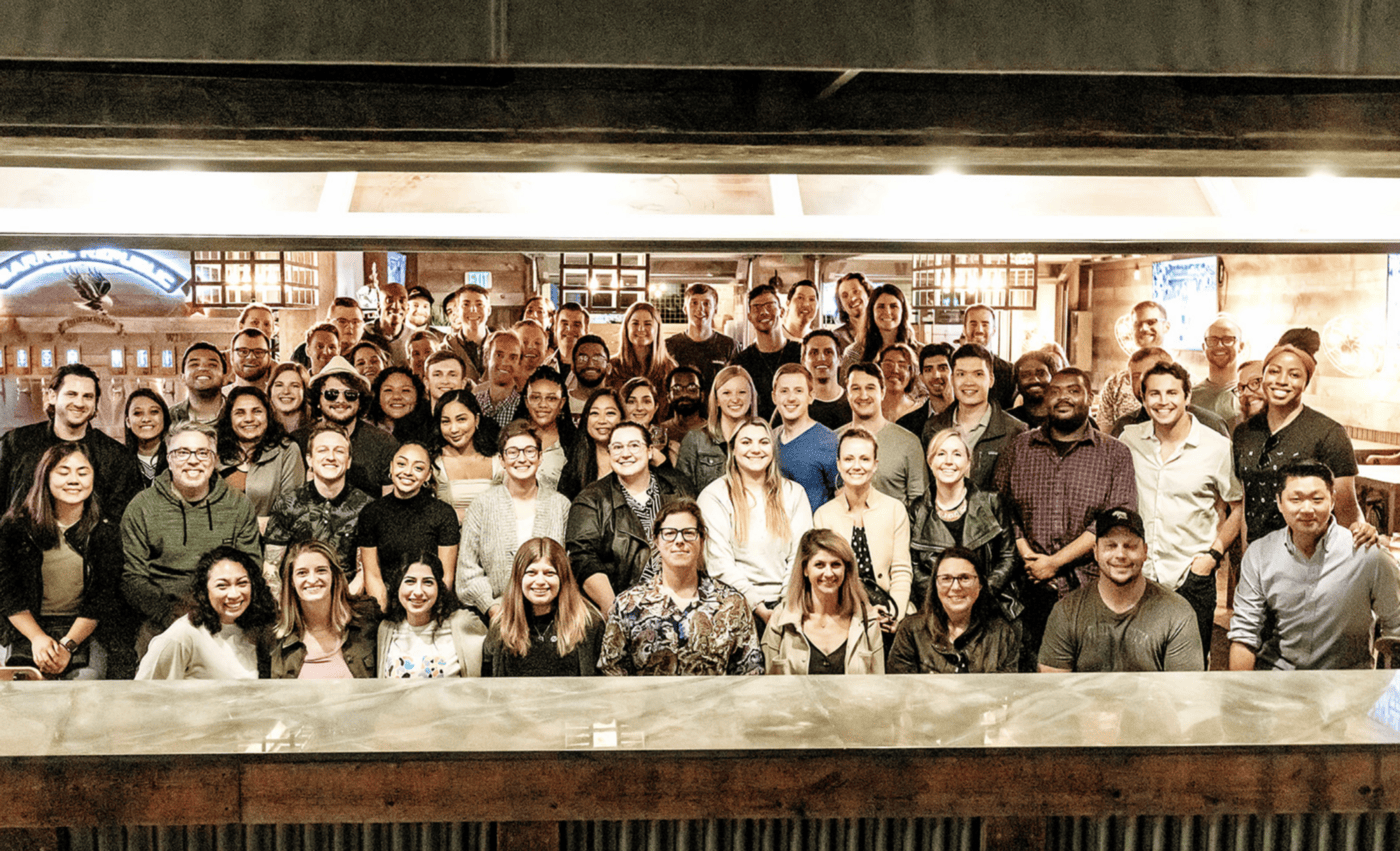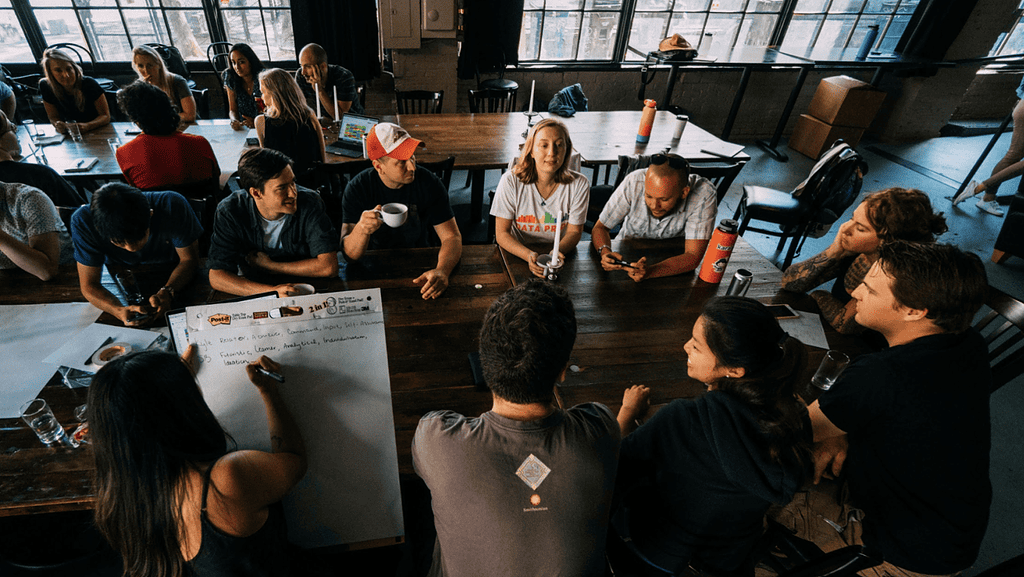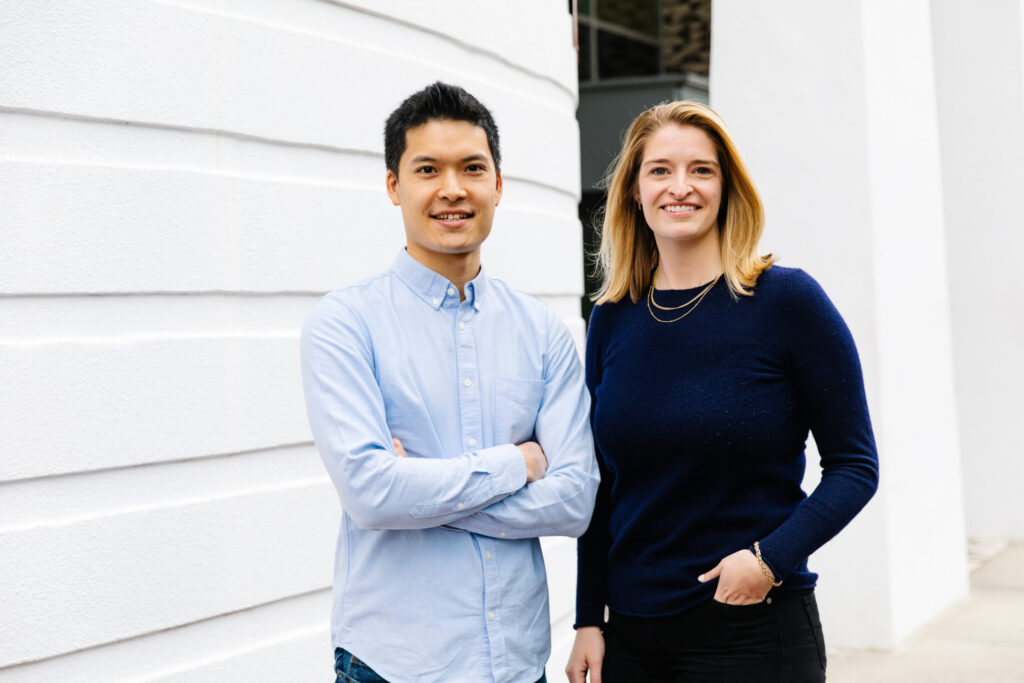As CEO and co-founder of Noyo, I get to work with an incredibly talented team who are dedicated to fulfilling one of the benefits industry’s biggest needs: trusted, usable benefits data. When that data is available, it dramatically improves how people experience their benefits.
It’s gratifying to know that we’ve already accomplished things that just a few years ago, smart people from our industry told me were impossible. We’ve barely scratched the surface of all Noyo can do and that’s a really exciting place to be — particularly when I reflect on the career path that led me here.
For you fellow entrepreneurs who have an idea germinating for your first business, here are a few of the lessons I’ve learned on my journey from product manager to CEO.
1. If The Product You Need Doesn’t Exist, Build It
The spark of the idea that eventually became Noyo happened while I was a product manager at Zenefits, the HR tech startup. I had joined right after the product caught fire in the market and the company was entering a period of hypergrowth. During that time, I got to work closely with the company’s incredible founding team, which provided many opportunities to observe what it takes to bring new products to life while building a company at the same time.
By the end of my tenure there, I was eager to go even earlier stage and help a startup find its footing. But as I shortlisted product ideas I’d enjoy working on – which included drones and farmtech, among other things – I kept wondering what it might be like to start something myself. I cycled through many different ideas, but couldn’t ignore a persistent need I saw in the benefits space — the industry’s lack of trusted, structured data. I had the domain expertise, the relationships, and the founding team to pursue it, and ultimately, the timing was right. So we took the plunge.
2. Funding Isn’t Just About Raising Capital
It’s been our experience that investors and funding isn’t just about the capital, it’s a dynamic relationship that can provide valuable support as you grow your idea into a business.
When we started Noyo, I was not well connected in the venture world, but I did have friends who were experienced and who were gracious enough to help coach me through the process. For the first several months, we did not take any investment because we wanted to nail down what we were going to build and the direction for the company.
Throughout this period, we got to know a few people who told us they would be ready to invest when we were ready. At a certain point, they actually called me and said: “Enough waiting around, you’re ready. Get some funding and go after this idea the right way. It’s too big to wait.” That important vote of confidence gave me the push to start the process.
We raised a small pre-seed round after a quick series of meetings with some small funds and got some incredible investors on our team through that process. They became our support network and helped us navigate the seed process that came a few months later. That really underscored the value of having the right partners before we raised our Series A and B.
3. Wearing Many Hats Early On Is Key to Managing Them Later
Most founders don’t wake up one day suddenly in charge of a 20-person sales team, and that’s a good thing. You perform many functions in the formative days of your business, which gives you enough grounding to later manage them. For example, I sold our first several deals, built our first financial models, and designed our first website. These were invaluable experiences as I grew in my role as CEO.
There are so many great resources out there with best practices and tactical advice from others who have gone through it before. I consulted those liberally, but there’s no substitute for rolling up your sleeves and doing the work. When you’re able to hire, you’ll have a foundation to draw on when selecting and managing people with much more experience in their fields.
I also lean on a network of mentors and friends who have done it before and can give me in-the-moment advice.
You perform many functions in the formative days of your business, which gives you enough grounding to later manage them.
4. Every Career Experience Has Transferable Skills
This might be a contrarian take, but I learned a lot from my time as a management consultant in my early career that helped me make the transition to startup founder. While the two jobs are quite different – as an analyst at a consulting firm, I created analysis that informed or supported executive decisions at very large, Fortune 500 companies, which is very far removed from execution and accountability. But I learned valuable lessons:
- What it takes to produce extremely high-quality work.
- How to break down large and abstract problems into tangible and manageable pieces.
- How to communicate well to people at all levels.
These were essential as we defined the value of Noyo in those early years.
My time as a management consultant also helped me deeply understand the power of shipping fast, because it can take a very long time to get things done in that type of environment. In contrast, startups let you build and ship all the time — a great environment for people who love to bring ideas to life at a pace most big companies can’t imagine.
5. Know When to Hand Off Areas of the Business
Product is my passion and I love collaborating with Noyo’s product managers, designers, and engineers. But I always knew that a CEO’s role must evolve as the business grows. So while Noyo’s product was founder-led for the first years, I’m proud to say we now have an incredible product leader in Elaina O’Mahoney. She joined shortly after we raised our Series B, led by Norwest Venture Partners. She’s quickly become a close partner to me and an admired leader across Noyo.
It’s a force multiplier to have someone who shares our product vision, is deeply aligned on our cultural values, and brings a wealth of experience building a high-performing product organization. I also love that I’m learning constantly through working with her and seeing her style and approach.
The same can be said for other department leaders as we’ve hired executives across the different areas of the business.

Final Thoughts: Transitioning from Product to Entrepreneurship
As a founder, being able to build an incredible product that people want is just the start. You also need to know how to market it, price it, and run a sales process — all without the resources you likely had in the company you left to found yours. Product is a great place from which to do this, but you can’t just sit on customer calls. You need to ride along with your favorite sales rep, ask them how they do their job, and take a customer support shift. If you’re in a leadership role, ask another department lead to take you through their challenges and how they navigate through them.
All this together will make you a better product person and a more attuned partner to your internal stakeholders, thereby deepening your relationships within the company. But most importantly, the exposure and understanding of how the whole machine works will be invaluable for getting your new company off the ground when you decide to take that great idea and go for it.
About the Author
Shannon Goggin is the CEO and co-founder of Noyo. Before starting Noyo, she was a product manager, building benefits software that showed off the powerful role technology can play in improving people’s experience with their benefits. Shannon lives in San Francisco, where Noyo is based.



